Seagate's Intel Rangeley NAS Pro 4-bay Review
by Ganesh T S on August 27, 2014 7:00 AM ESTEncryption Support Evaluation
Consumers looking for encryption capabilities can opt to encrypt a iSCSI share with TrueCrypt or some in-built encryption mechanism in the client OS. However, if requirements dictate that the data must be shared across multiple users / computers, relying on encryption in the NAS is the best way to move forward. Most NAS vendors use the industry-standard 256-bit AES encryption algorithm. One approach is to encrypt only a particular shared folder while the other approach is to encrypt the full volume. Seagate supports only volume-level encryption for now in NAS OS.
On the hardware side, encryption support can be in the form of specialized hardware blocks in the SoC (common in ARM / PowerPC based NAS units). In x86-based systems, accelerated encryption support is dependent on whether the AES-NI instruction is available on the host CPU. One of the most attractive features of the Intel Rangeley platform / Silvermont cores is full hardware acceleration for all essential cryptography functions. The results, as you can see below, are consistent across all evaluated scenarios. The penalty compared to unencrypted shares is non-existent.
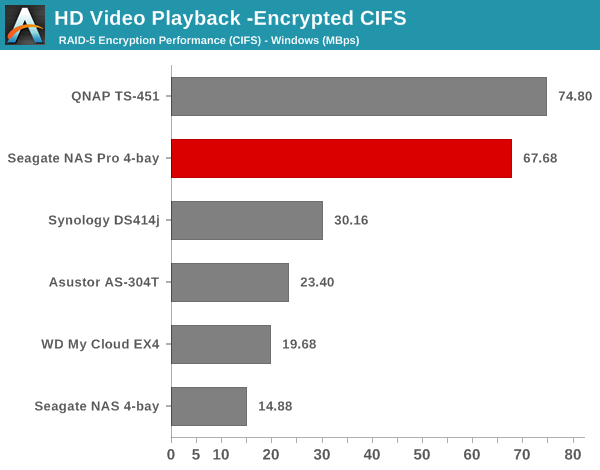
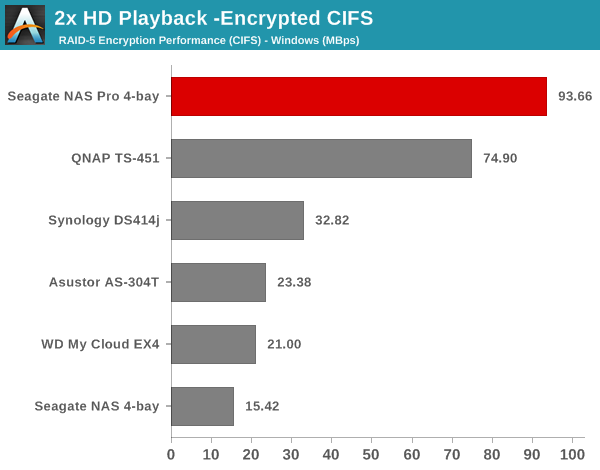
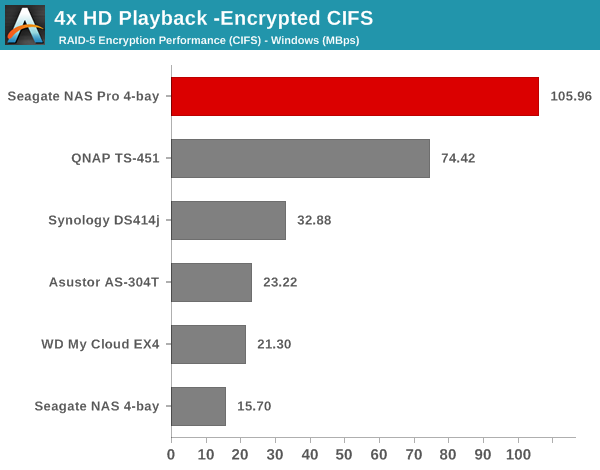
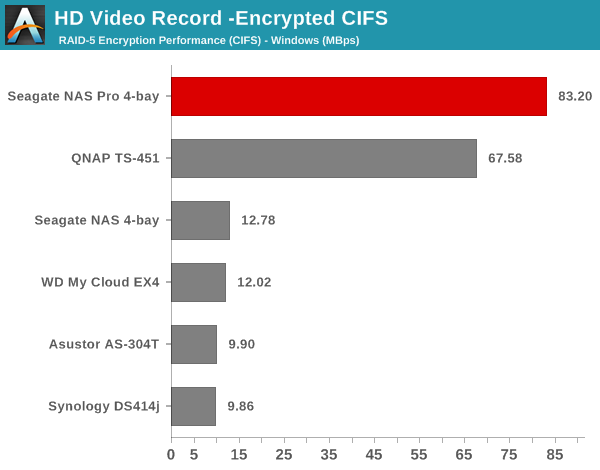
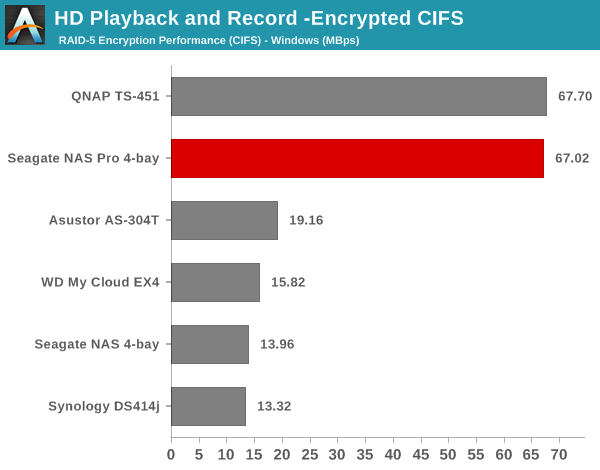
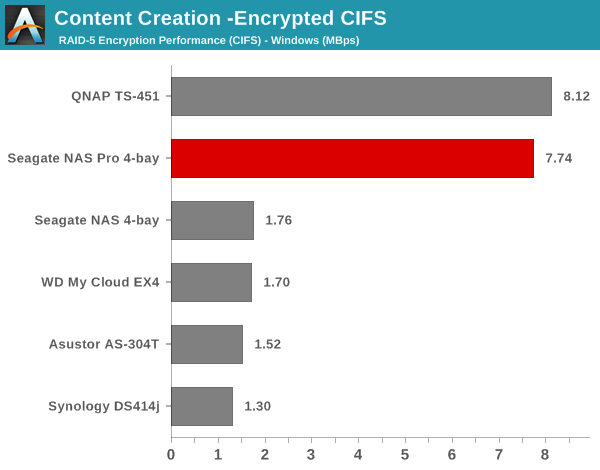
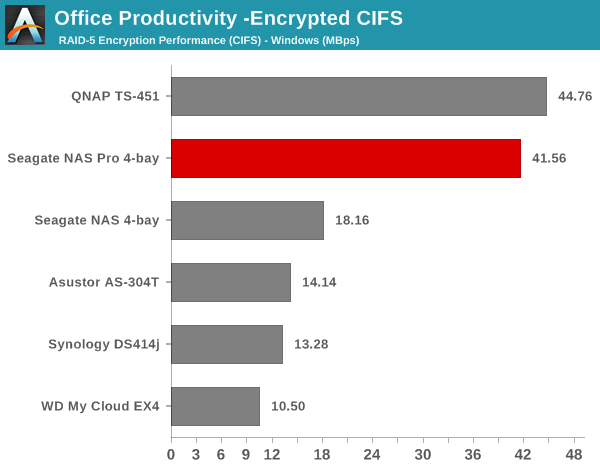
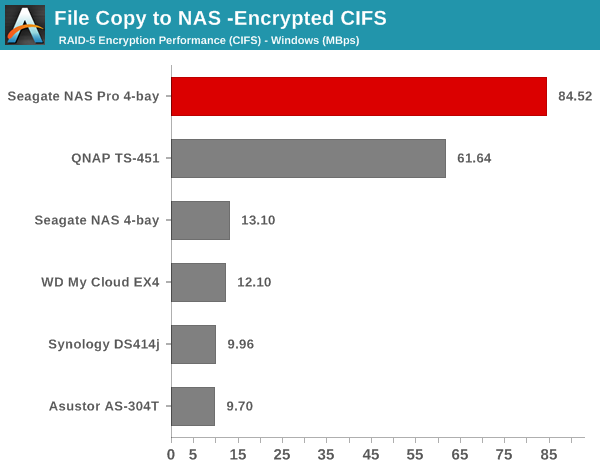
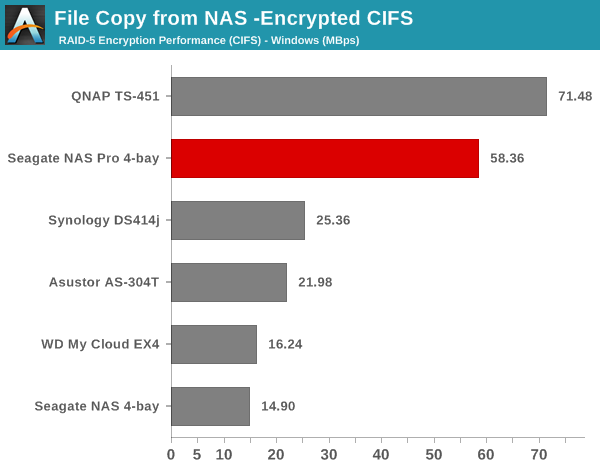
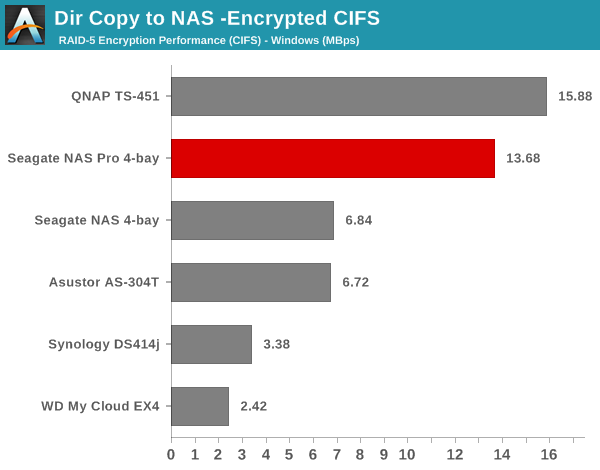
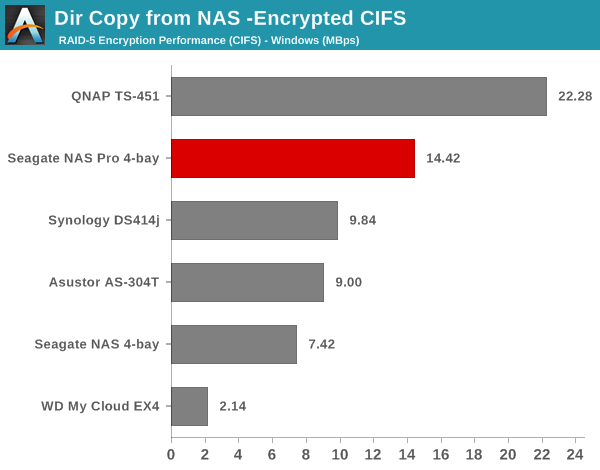
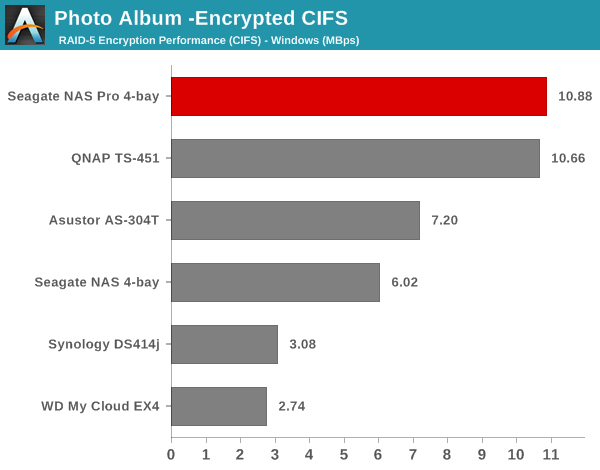
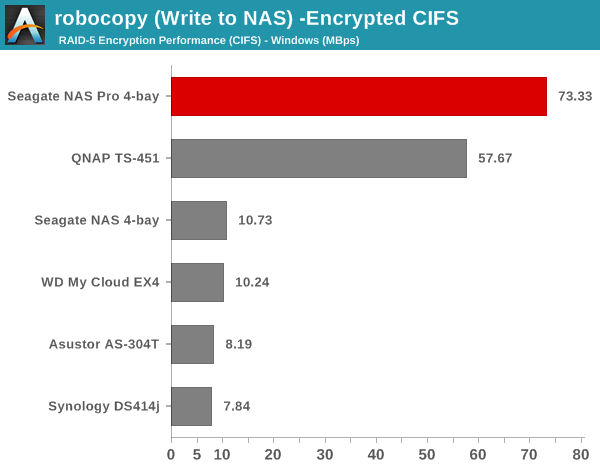
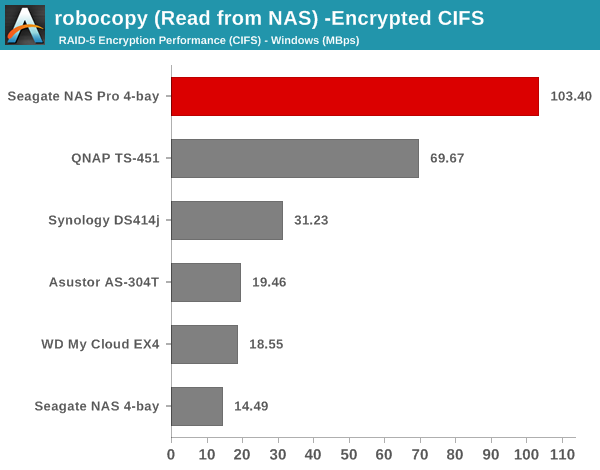
For SMBs worried about data security, but, at the same time, also mindful about performance, the Seagate NAS Pro presents a compelling choice. The NAS Pro delivers the best encryption performance per watt of all NAS units that we have evaluated so far.










13 Comments
View All Comments
StickyIcky - Wednesday, August 27, 2014 - link
I still don't know if I'm sold on hardware RAID for these types of storage solutions. What if this thing dies in 5 years? Am I going hunting on eBay for an old unit and hope it can get my data back? It's too much data to not be so forward thinking.ganeshts - Wednesday, August 27, 2014 - link
This is not hardware RAID. It is mdadm-based, i.e, software RAID on Linux. If the unit dies, you can always connect the drives to a PC to recover the data (similar to what we did for with a Synology NAS last week).StickyIcky - Wednesday, August 27, 2014 - link
That is certainly a different story. Thanks so much Ganesh! Great work as always.Samus - Wednesday, August 27, 2014 - link
RAID is to protect from a disk failure (usually just one disk.) If your entire unit or multiple disks fail, you'd need to recover from a backup no matter what the solution (unless you want to spend $700+ per disk on RAID data recovery)Always have a backup. Just pickup a 5TB external for <$200 (or two for $400 and put them in a dual bay JBOD for 10TB) and plug it into the NAS USB port. All modern NAS devices have a USB port for backup.
Death666Angel - Wednesday, August 27, 2014 - link
Hardware-RAID cards or mainboards with hardware RAID (do they still exist?) can fail and in contrast to software RAID make it harder to retrieve the data. But that has been a topic of hundreds of pages of heated debate on home server enthusiast websites, this isn't the place to have that discussion. :DGigaplex - Wednesday, August 27, 2014 - link
If it's just the controller that's busted, you do not normally need to recover from backup.creed3020 - Wednesday, August 27, 2014 - link
Overall I am left very impressed with this NAS. It just makes me wonder where Synology is because they are really missing products with this Rangely SoC. I really do like DSM but I have to wonder what the future holds when I need to upgrade from my DS 212j. If anything I hope that this increased competition benefits us consumers.Oyster - Wednesday, August 27, 2014 - link
Ganesh, somewhat off-topic, but can you share what your scheduled tasks for SMART tests look like? I run a rapid test every night and a complete test on a weekly basis on my QNAP. I wonder if the SMART polls stress the disks? Maybe you can throw some light on this.Laststop311 - Thursday, August 28, 2014 - link
I have used a lot of hard drives in my day. I have personally sworn off seagate as a brand. I had 5 yes count em 5 seagate hard drives fail within 18 months of each other. I rma it and the new ones they send me continue to fail one after the other. I'm currently using 4x 1TB wd red drives in my nas but I am running out of space. I want to make 1 big upgrade to 4x 6TB drives. Are the HGST he6 helium filled drives all they are cracked up to be? Do they really run noticeably quieter and cooler? Are they worth it to spend 420 dollars each on them?AntonyIndia - Friday, August 29, 2014 - link
Having only one NAS system with any number of disks or RAID is not going to rescue you in case of trouble as the weakest chain is the mutual board / power supply/ fan in that box. better buy two identical single disk NAS boxes and back A up onto B once a day (or week) and keep B in another room offline even without power most of the time.